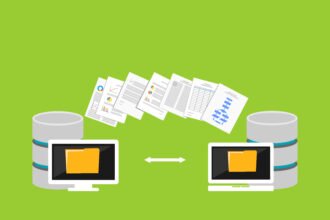Self tracking for performance has a place on the map now thanks to the May 2 New York Times Magazine article by Gary Wolf. But along with praise and interest, “The Data-Driven Life” also drew harsh, skeptical reactions.
Many of the objections were of the “if man were meant to fly, he’d have wings” variety. But many others were valid.
The practice will run over a few bumps before it joins mainstream performance management and business intelligence. Unlike the impersonal data we know and love, keeping data about oneself can be uncomfortable, difficult, and downright weird.
One of the articulate skeptics called it “robot envy.” In his weblog, Marginal Utility, Rob Horning summed up his objections in the final paragraph.
Numbers can provide only one sort of “truth” about ourselves, and to pursue it we must surrender or compromise other kinds of truth—for example, the intuitive faith we have in our qualitative assessments of our dasein. […] In other words, we give up our soul for a spreadsheet.
I’d like to meet the spreadsheet that steals souls. Until then, I’ll cling to my belief that no spreadsheet, not even Excel, has any more power to do that than …
Self tracking for performance has a place on the map now thanks to the May 2 New York Times Magazine article by Gary Wolf. But along with praise and interest, “The Data-Driven Life” also drew harsh, skeptical reactions.
Many of the objections were of the “if man were meant to fly, he’d have wings” variety. But many others were valid.
The practice will run over a few bumps before it joins mainstream performance management and business intelligence. Unlike the impersonal data we know and love, keeping data about oneself can be uncomfortable, difficult, and downright weird.
One of the articulate skeptics called it “robot envy.” In his weblog, Marginal Utility, Rob Horning summed up his objections in the final paragraph.
Numbers can provide only one sort of “truth” about ourselves, and to pursue it we must surrender or compromise other kinds of truth—for example, the intuitive faith we have in our qualitative assessments of our dasein. […] In other words, we give up our soul for a spreadsheet.
I’d like to meet the spreadsheet that steals souls. Until then, I’ll cling to my belief that no spreadsheet, not even Excel, has any more power to do that than a blood pressure cuff or a bathroom scale.
A more credible response came on the New York Times site from “Matt” in California.
Self-tracking will undoubtedly be used to oppress. It will wend its way into mainstream culture, eventually becoming something that employers expect of you as a matter of course. The temporal “productivity gaps” which we use to daydream, think about politics or other non-work related ideas, or simply consolidate memories, will be targeted and eliminated. Also, it is almost inconceivable that self-tracking data will avoid eventually going public.
Wolf gave his own response to some of the criticism (apparently a few minutes before Matt gave his).
I think many of the critical reactions make sense. What are we doing to ourselves? But I suspect that even the people who say something like “turn off the computer and go outside” are more deeply involved in the culture of self-tracking than they realize, and would benefit from going beyond initial revulsion. We _are_ in the process of changing. Our new selves will have new capacities as well as new vulnerabilities. Literacy itself was once a threat to our humanity: it interfered with memory, and substituted external representation for interior experience. It replaced living dialog with marks on a page. But we found a new sort of humanity in this world of letters.
The easy answer is that self tracking has to be done in moderation. Assuming it catches on, we’ll see public-service posters on buses and trains warning against overtracking and out-of-control “self love.” But every good thing is overdone and always will be. — and the solution has never been to ban it, deny it, or belittle it. It’s here, it’s coming, and we might as well use it.
See the article here, the 59 reader-recommended responses here, and all 138 online responses here. See the 7 letters here.







